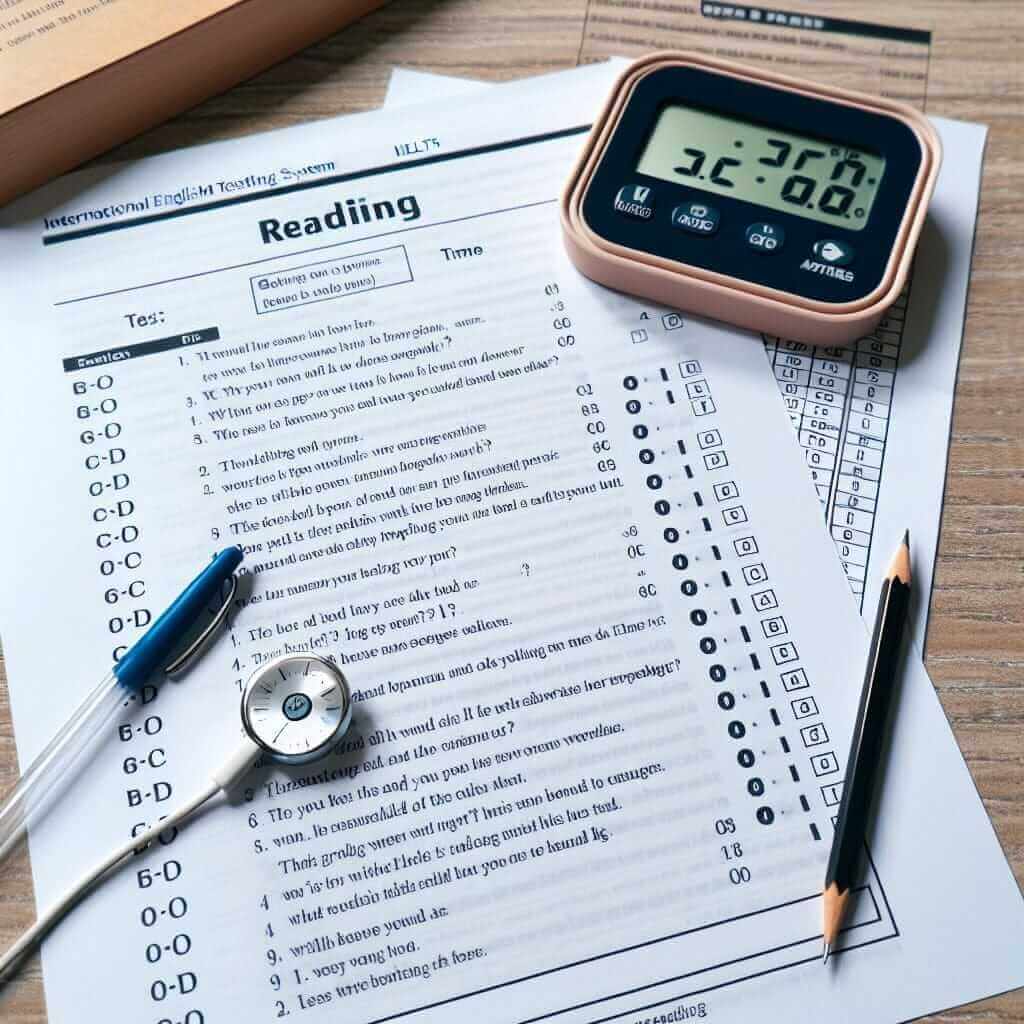Improving your IELTS reading skills as a non-native speaker can be challenging but is certainly achievable with the right strategies. This guide aims to provide comprehensive insights, practical tips, and detailed examples to help you maximize your IELTS reading score.
Introduction
The reading section in the IELTS exam can be particularly daunting for non-native speakers. It consists of three long passages, and you have 60 minutes to answer 40 questions. Understanding the importance of mastering this skill and deploying effective techniques can greatly enhance your performance.
Understanding the IELTS Reading Section
Before delving into the strategies, it’s essential to understand the structure and requirements of the IELTS reading section.
Structure of the IELTS Reading Section
The reading module consists of three passages, which get progressively harder. The questions may include:
- Multiple choice
- True/False/Not Given
- Matching headings
- Sentence completion
- Summary completion
Key Challenges
Some common challenges faced by non-native speakers include:
- Time management: Balancing speed and accuracy is crucial.
- Vocabulary: Understanding complex words in context.
- Comprehension: Grasping the main ideas and details.
Effective Strategies to Improve IELTS Reading Skills
1. Enhance Your Vocabulary
Having a robust vocabulary is vital for understanding reading passages. Here’s how you can improve it:
- Read extensively: Read a variety of texts including newspapers, academic journals, and novels.
- Use flashcards: Write down new words and their meanings on flashcards and review them regularly.
Example: If you encounter the word “quintessential” in a passage, knowing that it means “representing the most perfect example of something” will help you understand the text better.
2. Practice Skimming and Scanning
These are essential reading techniques that help you locate information quickly:
- Skimming: Reading rapidly to get an overall idea of the text.
- Scanning: Looking through the text quickly to find specific information.
Example:
Skimming: In a passage about global warming, focus on the introduction and conclusion to grasp the main idea.
Scanning: If a question asks about the effects of global warming on polar bears, scan the text for keywords like “effects,” “polar bears,” and “global warming.”
3. Improve Your Reading Speed
Reading quickly without compromising comprehension is key:
- Timed practice: Regularly practice with IELTS reading tests under timed conditions.
- Speed reading techniques: Techniques such as chunking can help improve speed.
Example:
Allocate 20 minutes per passage during your practice, aiming to answer all questions within that time frame.
4. Practice with Authentic Materials
Using materials that mimic the IELTS exam is crucial:
- Past papers: Practice with official IELTS practice papers.
- Similar texts: Read academic articles, reports, and essays.
5. Develop Inferencing Skills
Not all answers will be directly stated; some require you to infer meaning:
- Context clues: Use surrounding words and sentences to infer meanings of unknown words or ideas.
- Implications: Understand implications and nuances in the text.
Example:
In a passage discussing the adverse effects of smoking, you might infer that the author believes smoking should be restricted, even if it’s not directly stated.
Common Mistakes to Avoid
1. Spending Too Much Time on One Question
It’s essential to manage your time effectively. If a question is too hard, move on and come back to it later.
2. Misreading Questions
Read each question carefully to understand what is being asked. Look out for tricky wording like “not,” “all,” or “some.”
3. Ignoring the Instructions
Each question type has specific instructions. Follow them precisely to avoid losing points unnecessarily.
4. Overlooking Keywords
Always look for and underline keywords in both the questions and text.
 IELTS Reading Practice Test
IELTS Reading Practice Test
Practice Exercises
Daily Reading Practice
Spend at least 30 minutes each day reading:
- Academic texts
- Newspaper articles
- Scientific journals
Weekly Practice Tests
Take full IELTS reading practice tests weekly to:
- Build stamina
- Measure progress
- Identify areas for improvement
Conclusion
Improving your IELTS reading skills as a non-native speaker requires dedication and strategic practice. By enhancing your vocabulary, practicing skimming and scanning, improving reading speed, and regularly working with authentic materials, you can significantly improve your reading performance. Avoid common mistakes, manage your time effectively, and continually practice to increase your confidence and ultimately your score.
Feel free to leave a comment below or share your experiences. Explore more resources and tips on IELTS.NET to further enhance your skills. Good luck!


